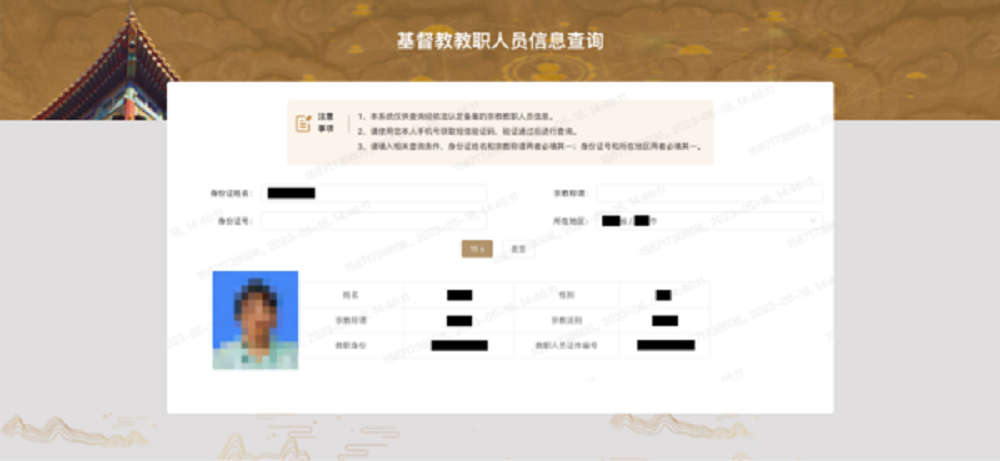China sets up online registry for 'official' clergy to weed out 'fake religious personnel’
The State Bureau of Religious Affairs today activated a website, ostensibly for greater "transparency", that requires users to give their phone number. Charges of fraud are often used against Evangelical "house churches". Three women are arrested in Suining on fraud charges.
Beijing (AsiaNews/Agencies) – China has set up an online registry for legally recognised Catholic, Protestant and Muslim clergy.
For the State Bureau of Religious Affairs, this makes religious affairs more open and protects religious believers against “fake religious personnel”.
Users can access the service only by identifying themselves with their telephone number and so will provide the authorities with another tool to monitor their religious activities.
It will negatively affect the credibility of members of the clergy legitimately ordained in underground communities, who, in good conscience, refuse to register with official bodies controlled by the Communist Party of China.
The new registry operates like the one introduced on 22 February for Buddhist and Taoist monks.
A cleric’s identity can be checked on the website of the State Bureau of Religious Affairs, as well as the Chinese Catholic Patriotic Association for Catholics and similar bodies for Protestants and Muslims.
Every cleric’s profile will include name, personal data, title and the official registration number, as well as a picture.
Such an app gives the authorities greater power to remotely control religious activities. It is also not new. Starting in March, religious believers in Henan had to register in order to attend religious services at churches, mosques as well as Buddhist temples through a "Smart Religion" application, developed by the Provincial Commission for Ethnic and Religious Affairs.
An online form must be filled out providing information such as name, telephone number, identity card, permanent residence, occupation and date of birth.
As for the preventing "scams" by "fake religious personnel", the China Christian Daily reported yesterday the case of three Christian women – Li Bingrong, Xie Lihong and Huang Qiuyan – arrested on suspicion of "fraud" in the city of Suining,
All three reportedly are bank employees and helped people transfer donations to a Christian organisation.
The accusation of fraud is one of the tools of persecution used against "house churches", that is, unregistered Evangelical communities. Communist Party officials employ it against members of the clergy and lay people to limit any activity outside "official" communities.
24/03/2023 13:21
28/12/2017 13:57







.png)










